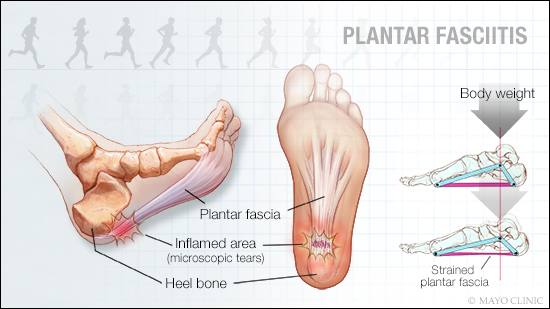Posted on Dec 03, 2019 at 7:43 AM

Plantar Fasciitis
Brenda Kyttle, MPT, is the Clinical Manager of our Hanover Township facility located on Oxford Street. Brenda has been employed with PRO Rehabilitation Services for 18 years and holds the position as Clinical Manager of the Hanover Township facility for the past 13 years.
Brenda years of experience in orthopedic and musculoskeletal disorder has allowed her to develop and grow the practice in Hanover township.
Brenda is committed to the community and serves on the board of the Colleen Shea Children's Foundation which provides funding to various children's causes in Northeast PA. She also coordinates activities for the annual Bowl for Kids' Sake sponsored by Big Brothers/Big Sisters.
A common diagnosis seen at all PRO facilities is plantar fasciitis. If you are complaining of pain in your feet it may be plantar fasciitis.
I have pain in my heel and the bottom of my foot, could it be Plantar Fasciitis?
If you have been experiencing pain in you heel or the bottom of your foot that won’t go away, it could be plantar fasciitis. It is the most common cause of heel and foot pain and more than 3 million cases are diagnosed per year in the US. The plantar fascia is a band of tissue that connects the heel bone to the toes and supports the muscles and arch of your foot. When it becomes inflamed, it can cause pain in the heel and bottom surface of the foot which is typically worse in the AM or when you first start to walk.
What can cause plantar fasciitis? Some risk factors are the following:
- Having flat feet or very high arches
- Having tight muscles including the Achilles Tendon
- Having a job where you are on your feet for serval hours a day
- Wearing worn shoes or high heeled shoes frequently
- Increased running
Plantar Fasciitis is typically diagnosed by a physical exam and medical history by a health care provider including your family physician or physical therapist. Most people get relief from conservative treatment including rest, ice and over the counter anti-inflammatory medications. If symptoms are persistent, seeing a physical therapist may be beneficial to decrease the pain. A physical therapist can help to get rid of the inflammation with treatments such as ultrasound and manual stretching. They will also provide you with correct stretches to perform and information heel cups or arch supports for your shoes to decrease pressure and help support your arch.
What else can I do to prevent plantar fasciitis or stop it from occurring? Some tips to decrease inflammation are as follows:
- Wear good shoes or use inserts in your shoes for support especially if you work on your feet.
- Eliminate walking barefoot on hard surfaces
- Do low impact exercises such as a stationary bike or swimming
- Continue to do stretches to maintain flexibility of the foot and calf
If you are suffering from heel pain, contact your family physician and a physical therapist at PRO Rehab to help get you back on your feet pain free!
Return to All News